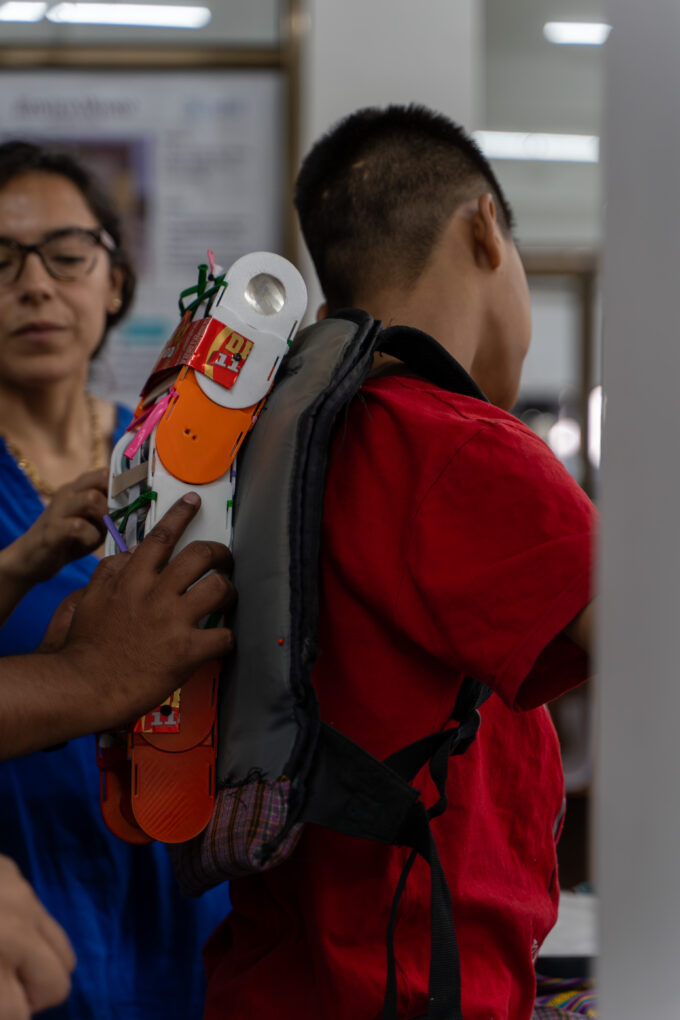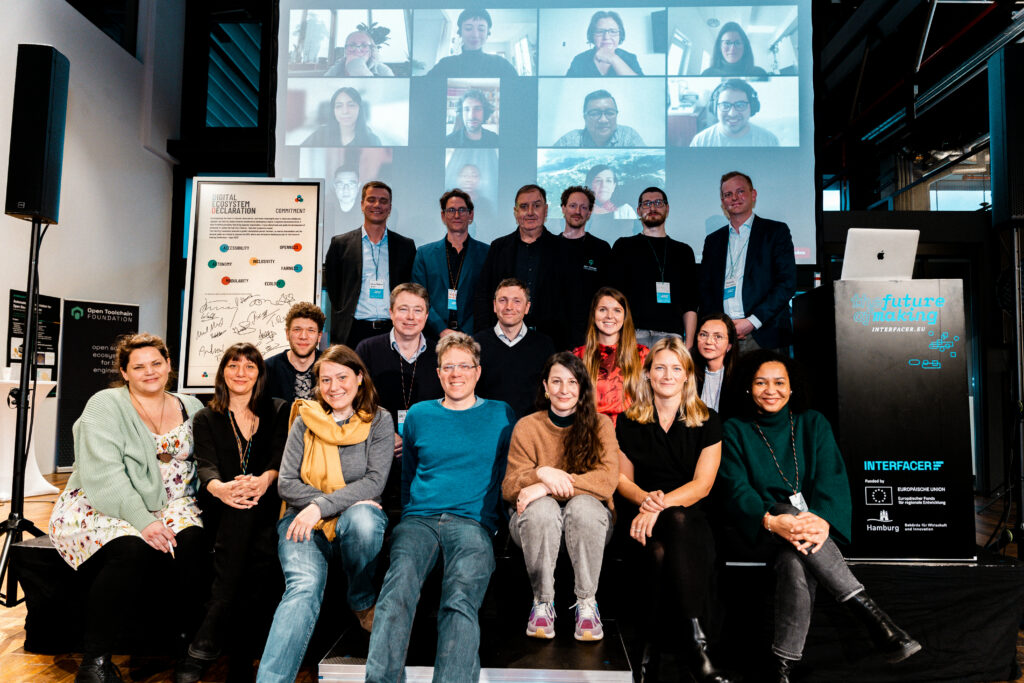
Bhutan’s Digital Assistive Device Revolution: A Global Phenomenon in the Making
Venturing into one of the world’s most remote nations, we embarked on a 5-day challenge, thanks to the warm hospitality of FabLab CST in Phuentsholing. There, experts from across the globe collaborated with local special education needs (SEN) students to digitally fabricate assistive devices and foster strategic programs for Bhutan. Our journey began with a heartfelt welcome, complete with white Khata and personalized polo shirts, leaving us in no doubt that we were in the right place.
The ALU team in front of the College of Science and Technology in Phuentsholing. Credit: Fab City Foundation
We were privileged to take part in the efforts of the new kingdom to open itself globally. This momentum has led to the global event being organized there this year, which attracted hundreds of technologists, scientists, entrepreneurs, educators and creatives in perhaps the largest technology event organized to date in the entire country.

Our challenge, “Aluminium Waste, Gracefully Braced,” united individuals from Japan, India, Singapore, Colombia, Mexico, Czechia, Abu Dhabi, and Bhutan, including mothers, school teachers, physiotherapists, and more. Overcoming cultural and language barriers, transportation issues, and scorching heat, the indomitable spirit of Dr. Cheki Dorji, President of FabLab CST, set the tone. Koji Yamada and the Japan International Cooperation Agency’s tireless efforts energized us, while Dr. Karma Kelzang, our hostess, and FabLab manager, infused a charming introduction session with a touch of karaoke. The blend of cultures began.
Our challenge, “Aluminium Waste, Gracefully Braced,” united individuals from Japan, India, Singapore, Colombia, Mexico, Czechia, Abu Dhabi, and Bhutan, including mothers, school teachers, physiotherapists, and more. Overcoming cultural and language barriers, transportation issues, and scorching heat, the indomitable spirit of Dr. Cheki Dorji, President of FabLab CST, set the tone. Koji Yamada and the Japan International Cooperation Agency’s tireless efforts energized us, while Dr. Karma Kelzang, our hostess, and FabLab manager, infused a charming introduction session with a touch of karaoke. The blend of cultures began.
In just 72 hours, we developed Assistive Learning Units (ALU), a Science, Technology, Engineering, Arts and Mathematics (STEAM) educational program that focused on eight assistive devices through project-based learning. We repaired, customized, cast aluminum, assembled a braille printer, and created 3D printed soles, fostering a close relationship between assistance and learning. Our mantra was to share, share, and share, and the enthusiastic Bhutanese students embraced a “yes” attitude, eager to innovate and succeed.
Our source of inspiration? The SEN students and mothers who struggle daily, and aluminum cans, which transformed from waste into the foundation of our creative projects. Our time in Phuentsholing drew to a close, we planted a tree near a community-built temple, symbolizing our accomplishments in a short span—swift repairs, inspiring conversations, and the satisfaction of successful projects and newfound partnerships.
Journeying to Thimphu, we showcased our solutions in the city’s main square, garnering recognition from important governmental stakeholders. ALU even secured the Public Favorite Award, leaving an indelible mark on many Bhutanese hearts and encouraging everyone to join our newly developed dance routine. Throughout the Fab Conference, we engaged with government officials, paving the way for innovative ideas to be implemented. Our commitment remains steadfast: making STEAM education accessible and placing assistive devices at the forefront of FabLabs’ mission—bringing mothers and children together within a single space for learning, repairing, and future innovations.
This inspirational event would not have been possible without the combined effort and energy of individuals from diverse backgrounds. The outstanding hosting and coordination by FabLab CST, bringing together global experts and local students, played a pivotal role in the success of the event. This article was authored by Leyla Yunis, from Maker Institute Prague and an invaluable challenge participant with the help of Antonio Gordillo and Saad Chinoy.
Our journey in Bhutan was a remarkable blend of cultures and collaboration, uniting diverse minds to create the Assistive Learning Units. After winning $5,000 USD in seed funding from the Public Favorite Awards, we intend to continue turning waste into innovative solutions and bring Bhutan’s first STEAM program to fruition.

This article is authored by Leyla Yunis.
Computational designer, researcher, and educator
Involved in algorithm-based processes and creative technologies
Expert in lightweight construction and focus on citizen-led projects
Director at the Maker Institute in Prague


